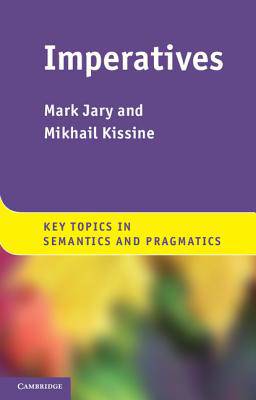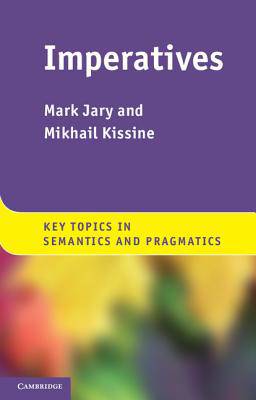
- Afhalen na 1 uur in een winkel met voorraad
- Gratis thuislevering in België vanaf € 30
- Ruim aanbod met 7 miljoen producten
- Afhalen na 1 uur in een winkel met voorraad
- Gratis thuislevering in België vanaf € 30
- Ruim aanbod met 7 miljoen producten
Zoeken
€ 70,95
+ 141 punten
Uitvoering
Omschrijving
Imperative sentences usually occur in speech acts such as orders, requests, and pleas. However, they are also used to give advice, and to grant permission, and are sometimes found in advertisements, good wishes and conditional constructions. Yet, the relationship between the form of imperatives, and the wide range of speech acts in which they occur, remains unclear, as do the ways in which semantic theory should handle imperatives. This book is the first to look systematically at both the data and the theory. The first part discusses data from a large set of languages, including many outside the Indo-European family, and analyses in detail the range of uses to which imperatives are put, paying particular attention to controversial cases. This provides the empirical background for the second part, where the authors offer an accessible, comprehensive and in-depth discussion of the major theoretical accounts of imperative semantics and pragmatics.
Specificaties
Betrokkenen
- Auteur(s):
- Uitgeverij:
Inhoud
- Aantal bladzijden:
- 336
- Taal:
- Engels
- Reeks:
Eigenschappen
- Productcode (EAN):
- 9781107632356
- Verschijningsdatum:
- 17/07/2014
- Uitvoering:
- Paperback
- Formaat:
- Trade paperback (VS)
- Afmetingen:
- 140 mm x 216 mm
- Gewicht:
- 390 g

Alleen bij Standaard Boekhandel
+ 141 punten op je klantenkaart van Standaard Boekhandel
Beoordelingen
We publiceren alleen reviews die voldoen aan de voorwaarden voor reviews. Bekijk onze voorwaarden voor reviews.











